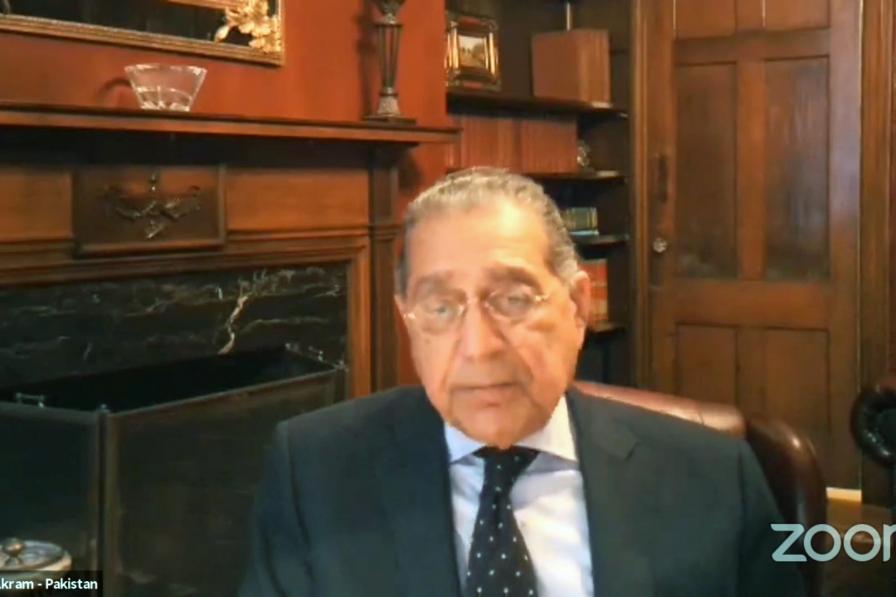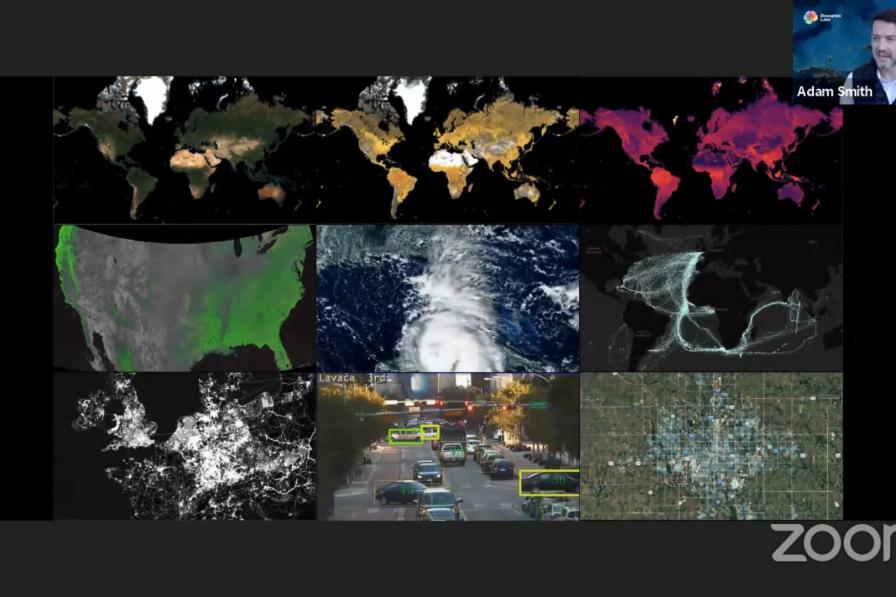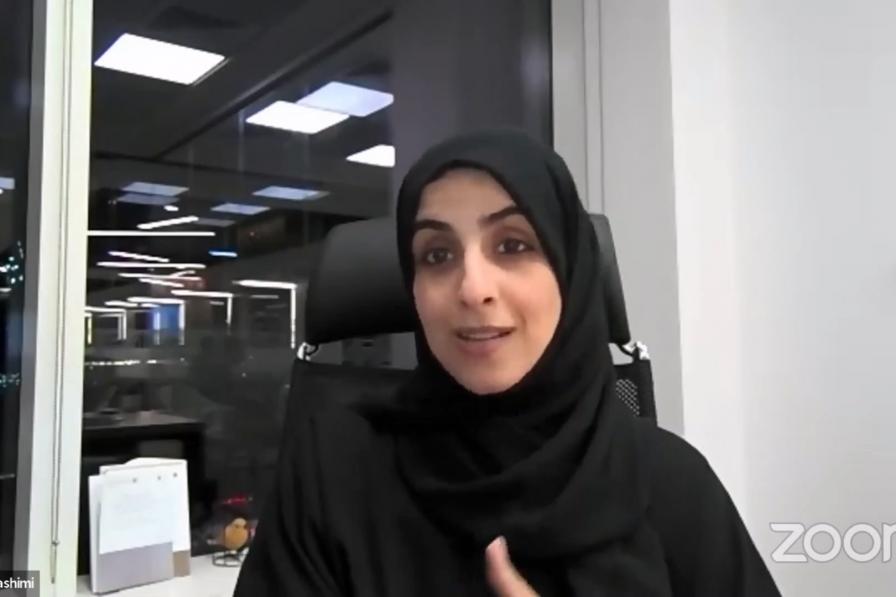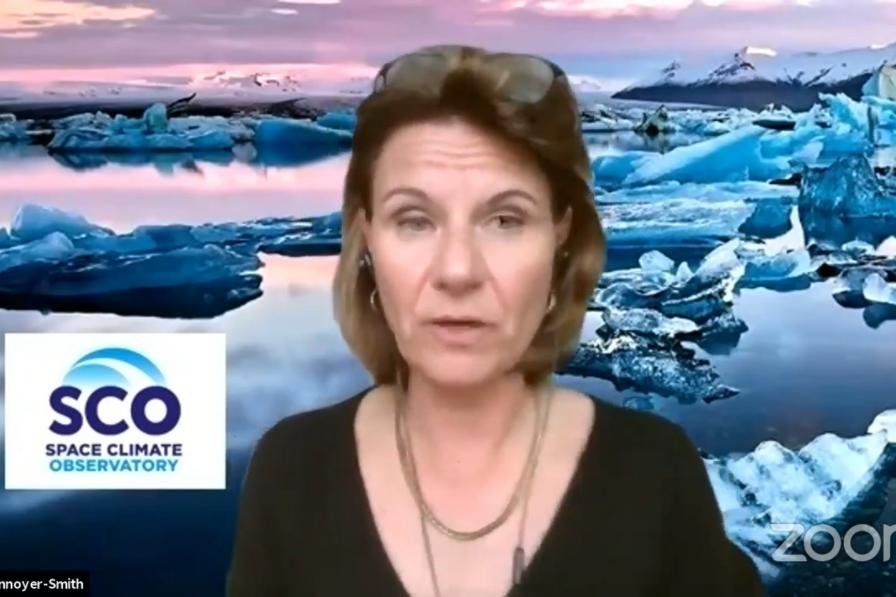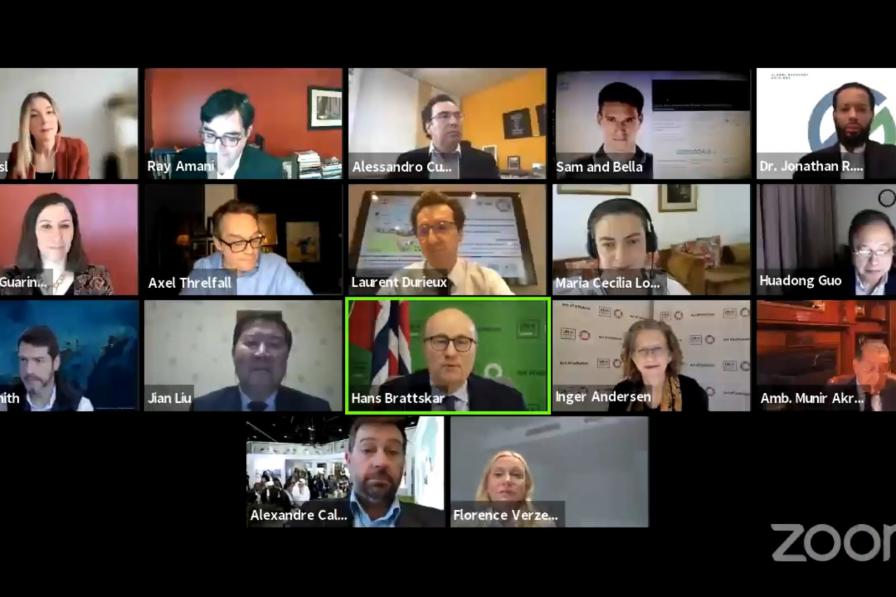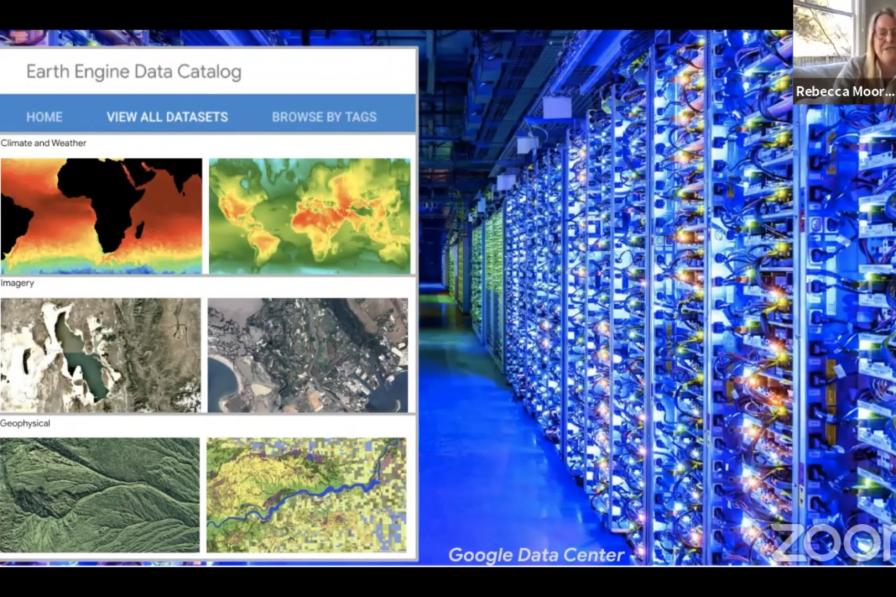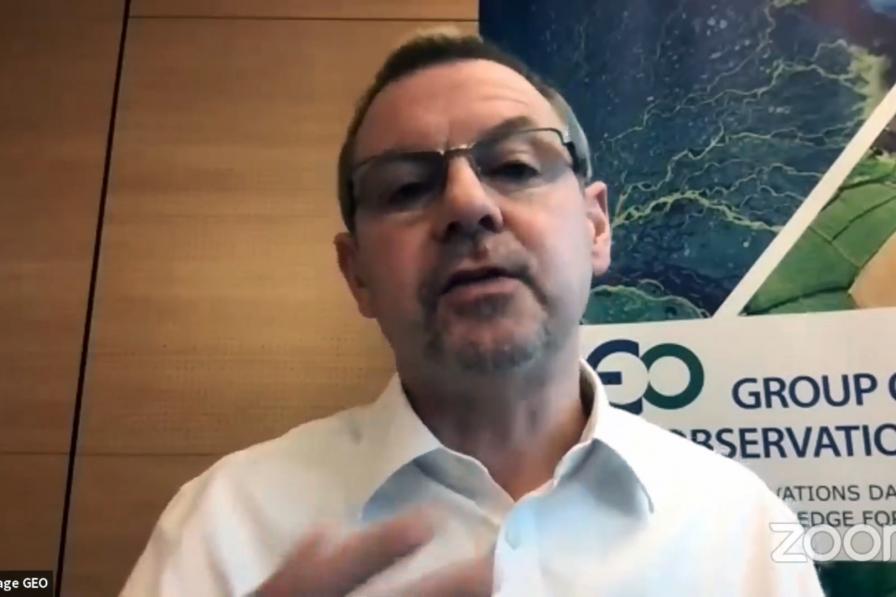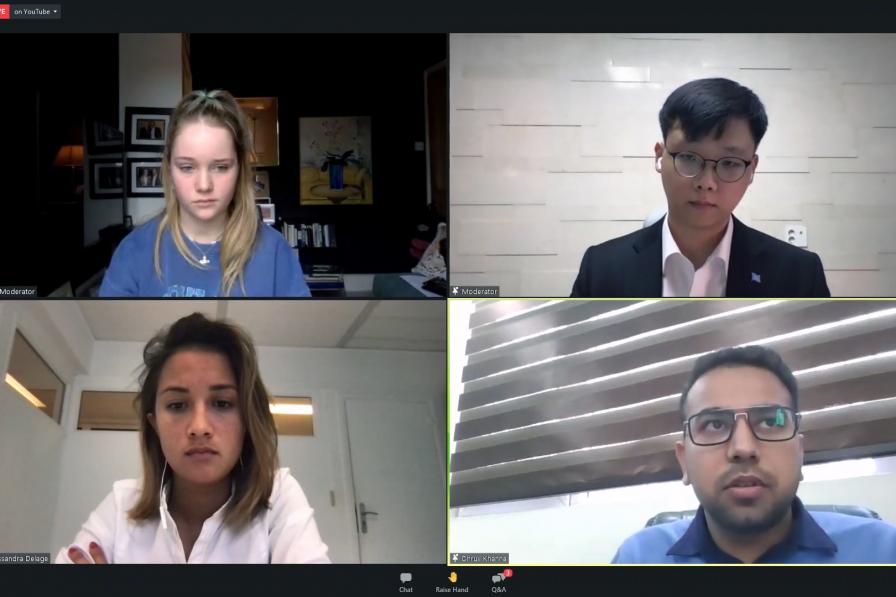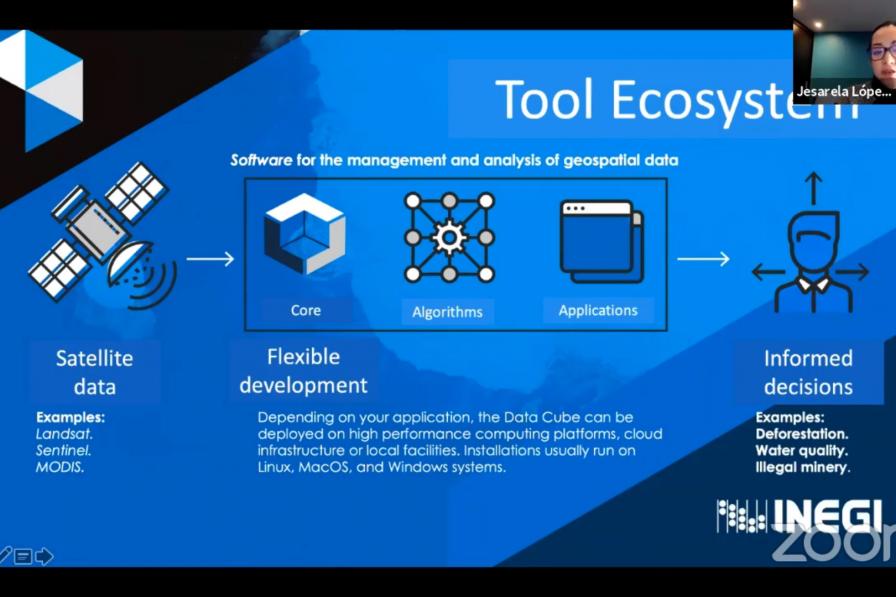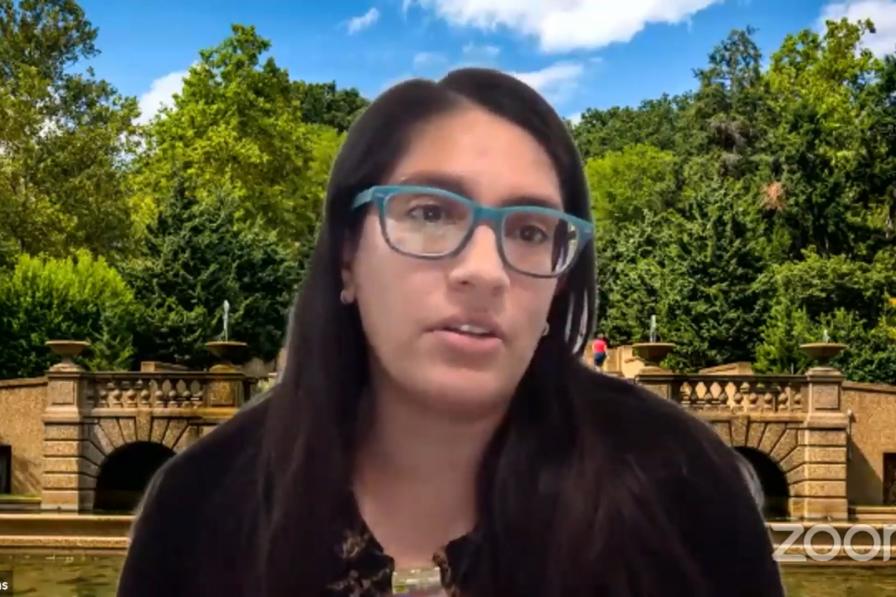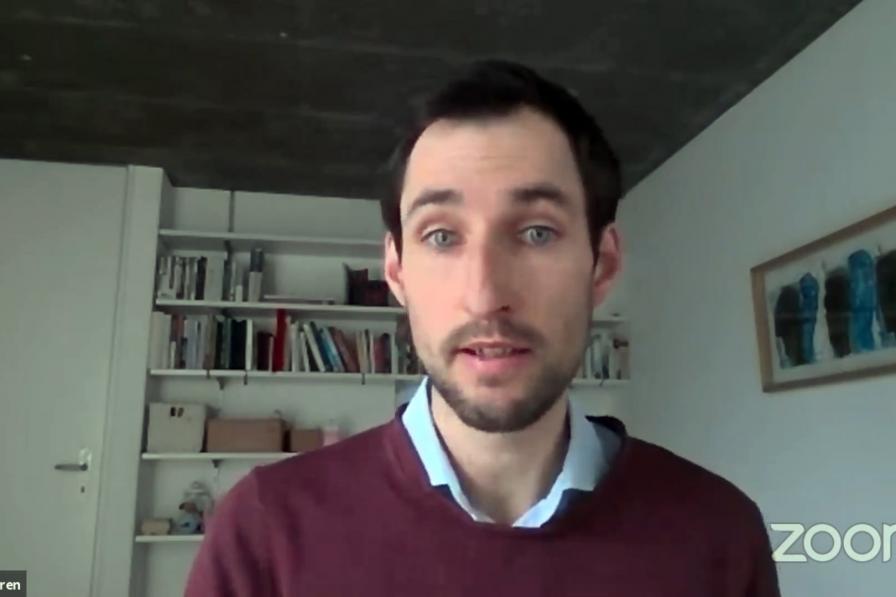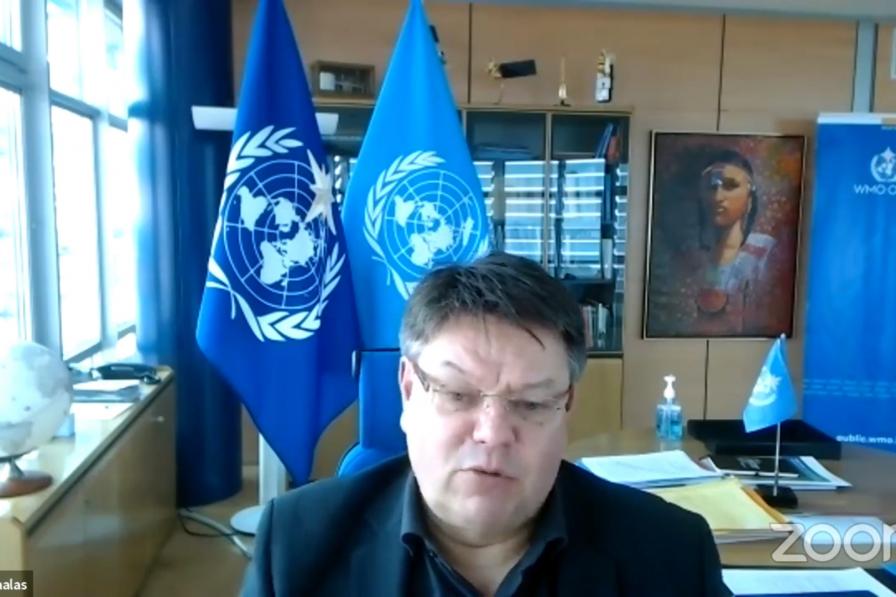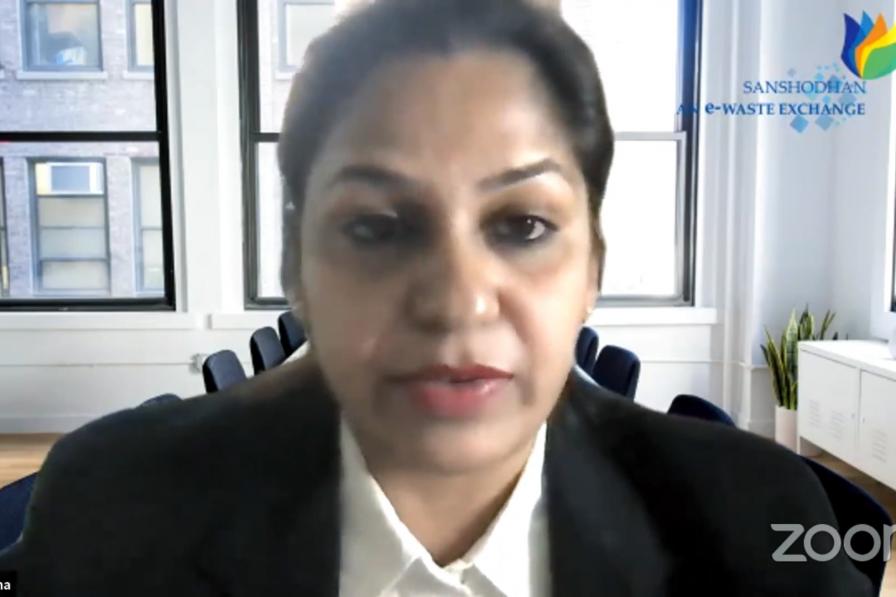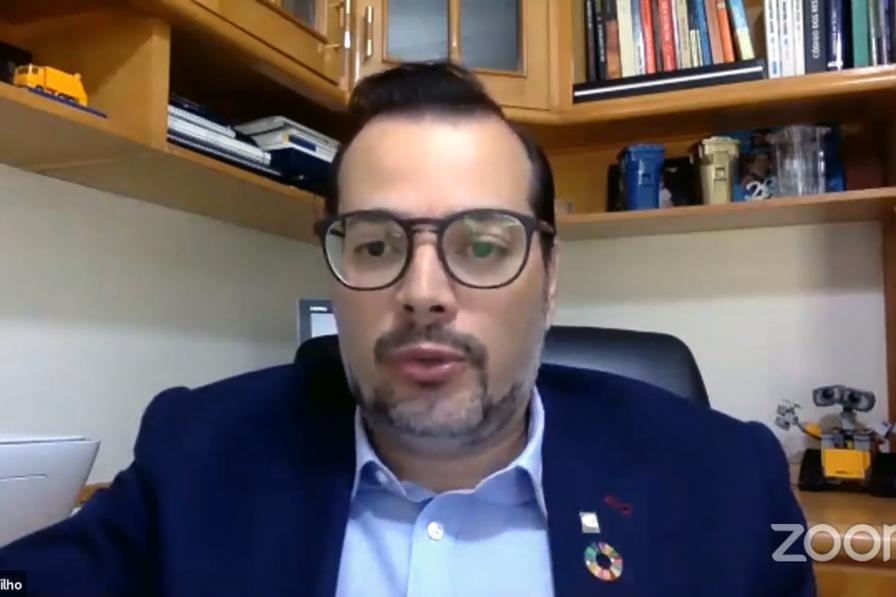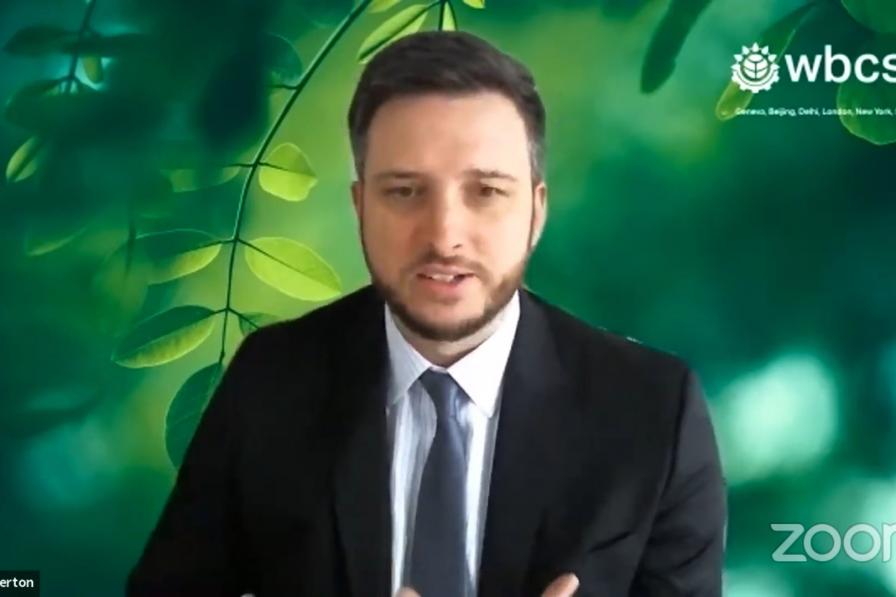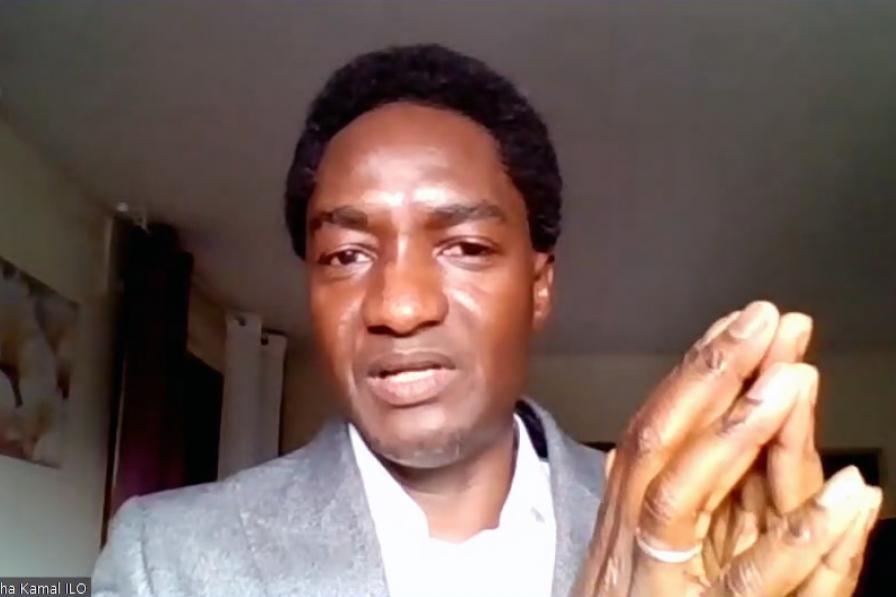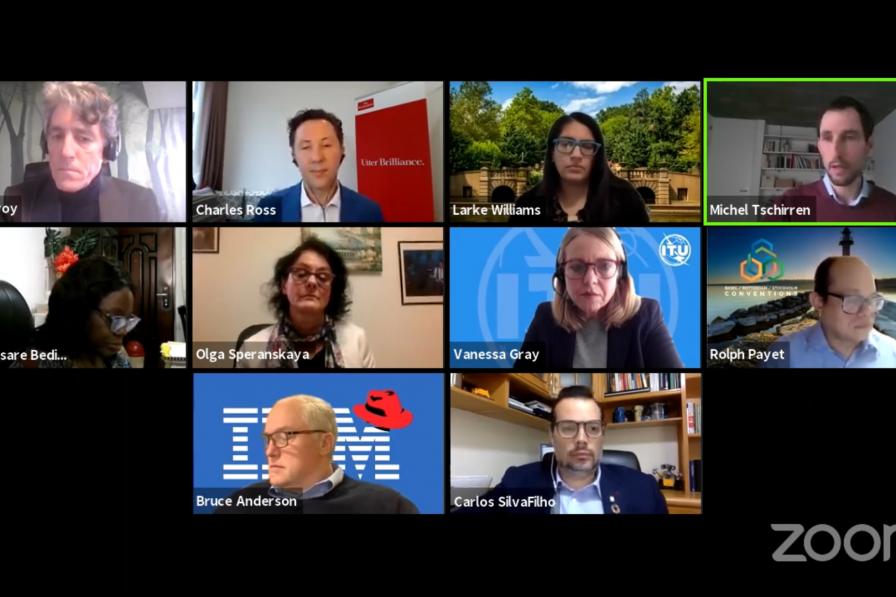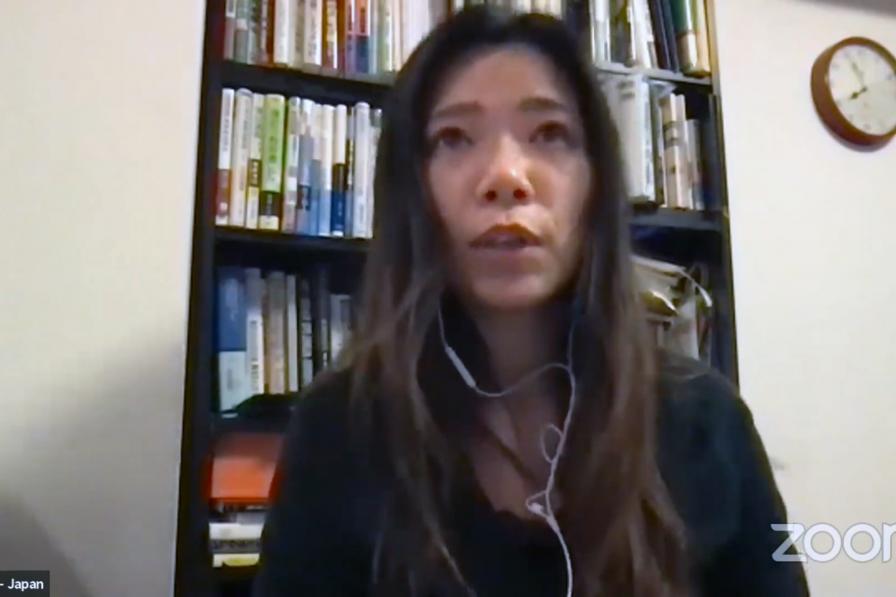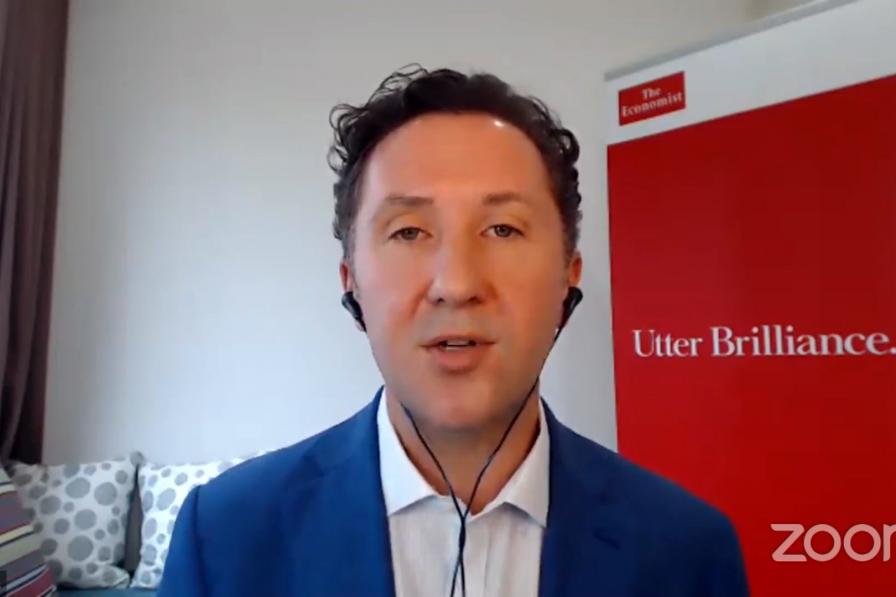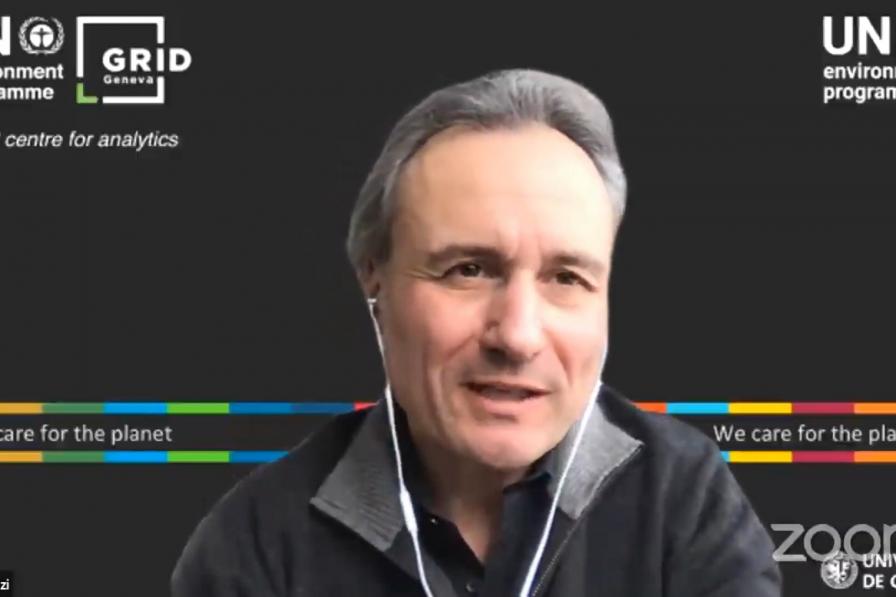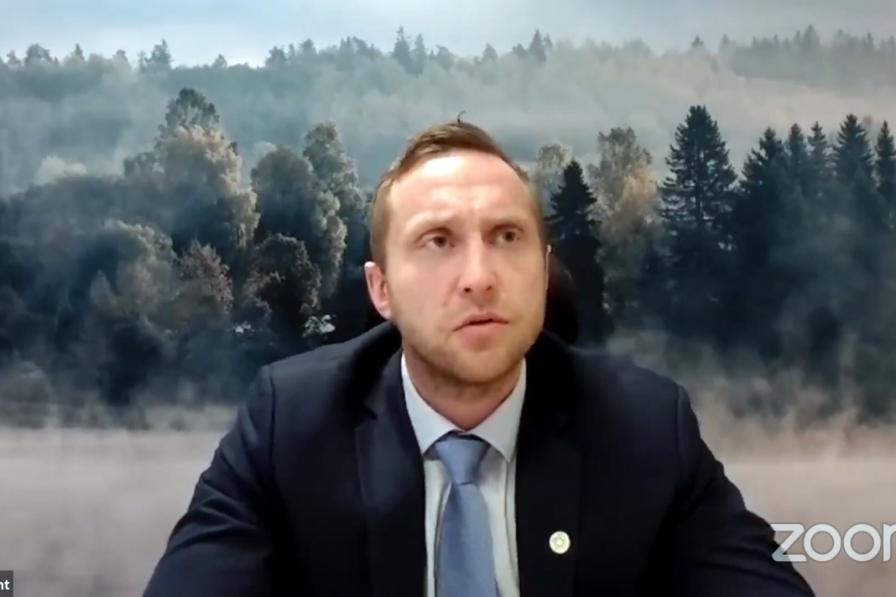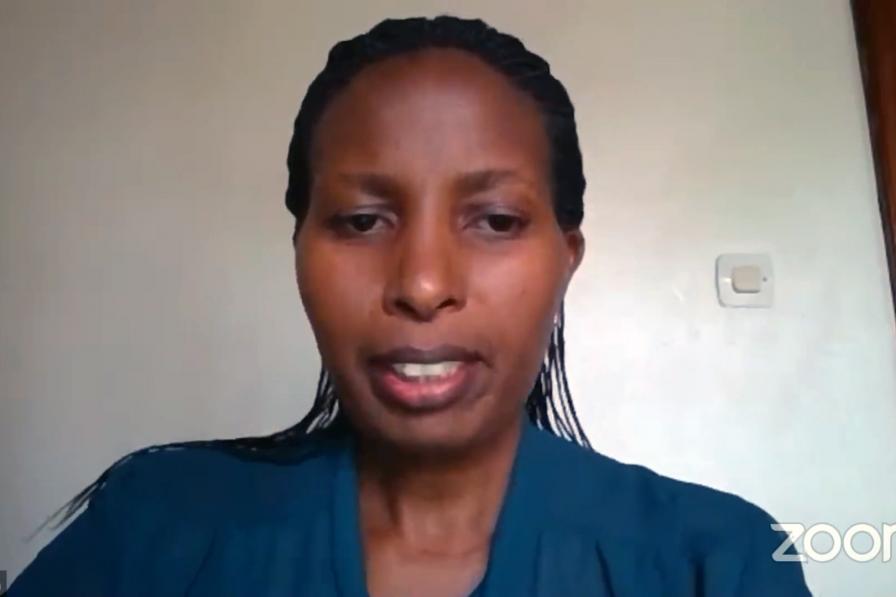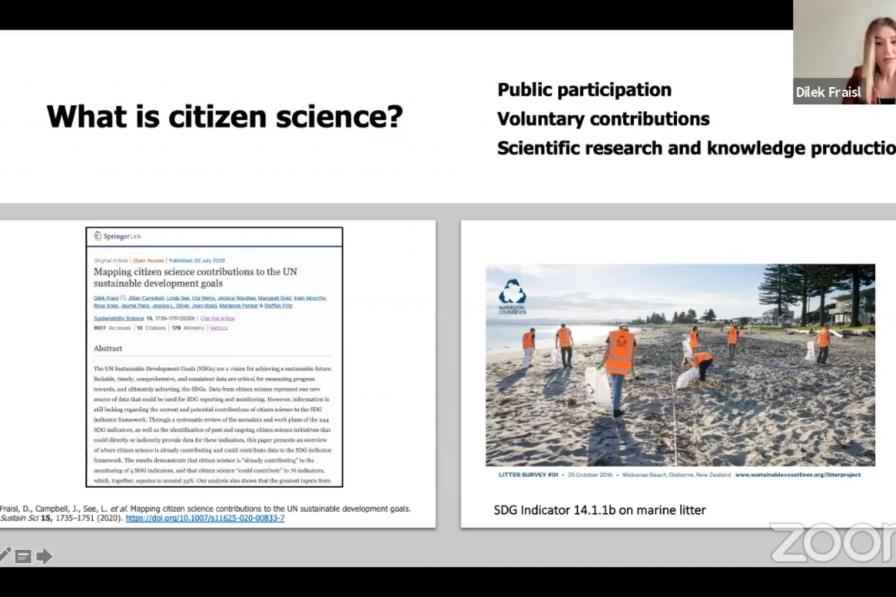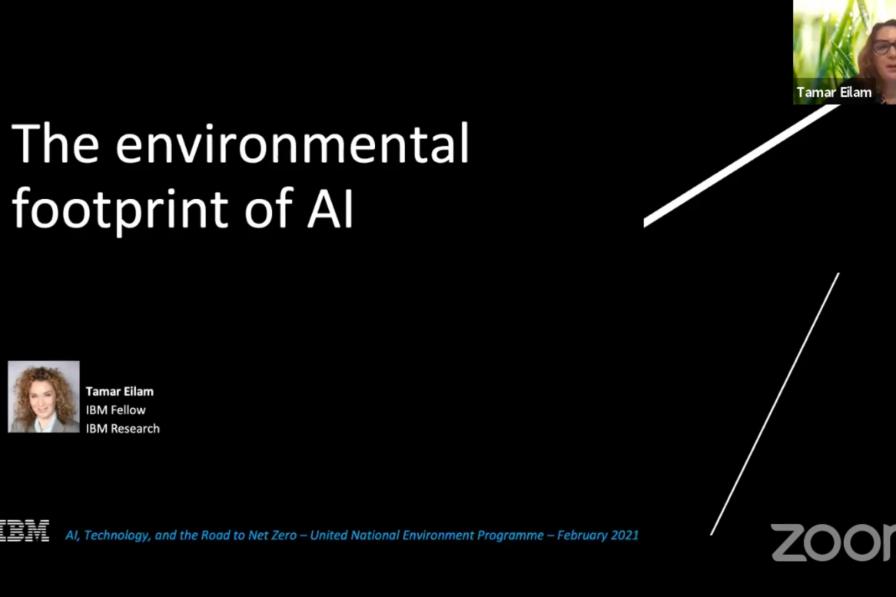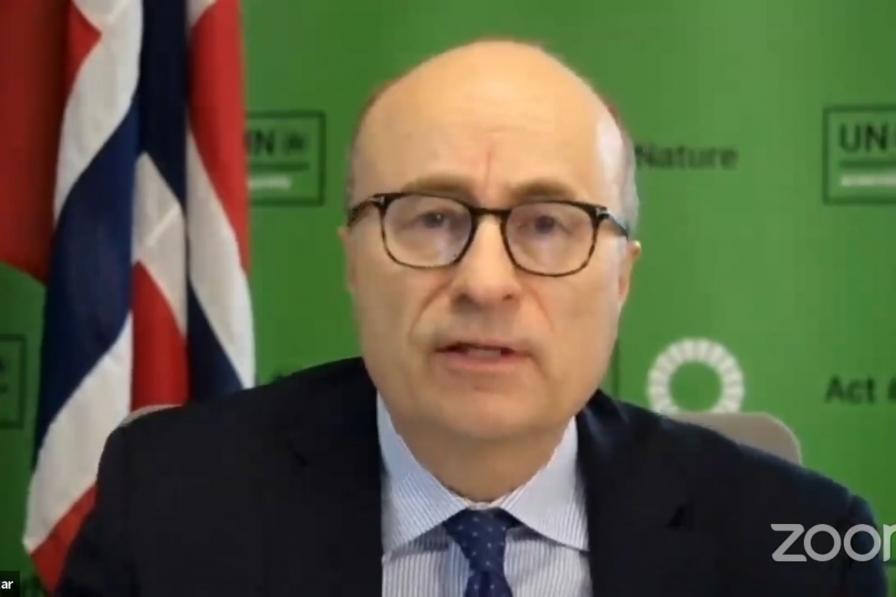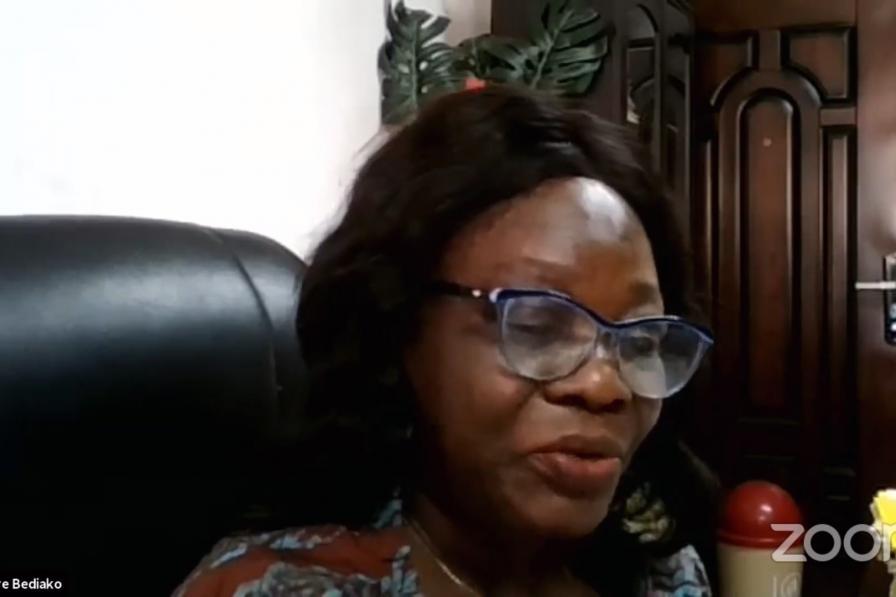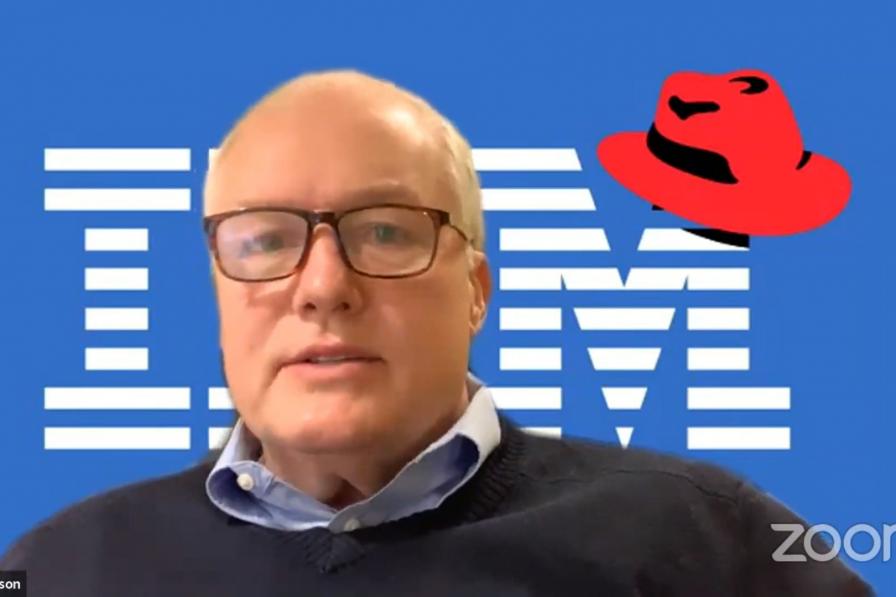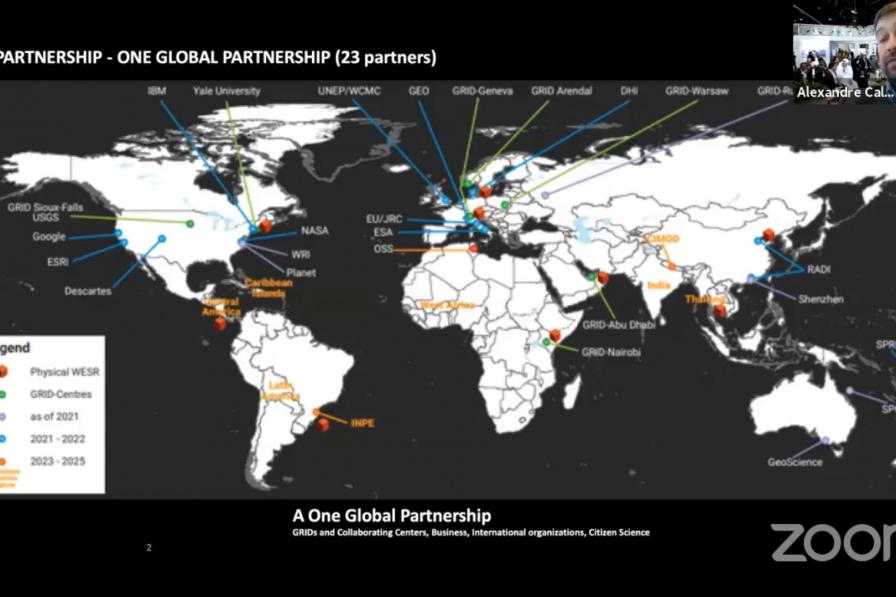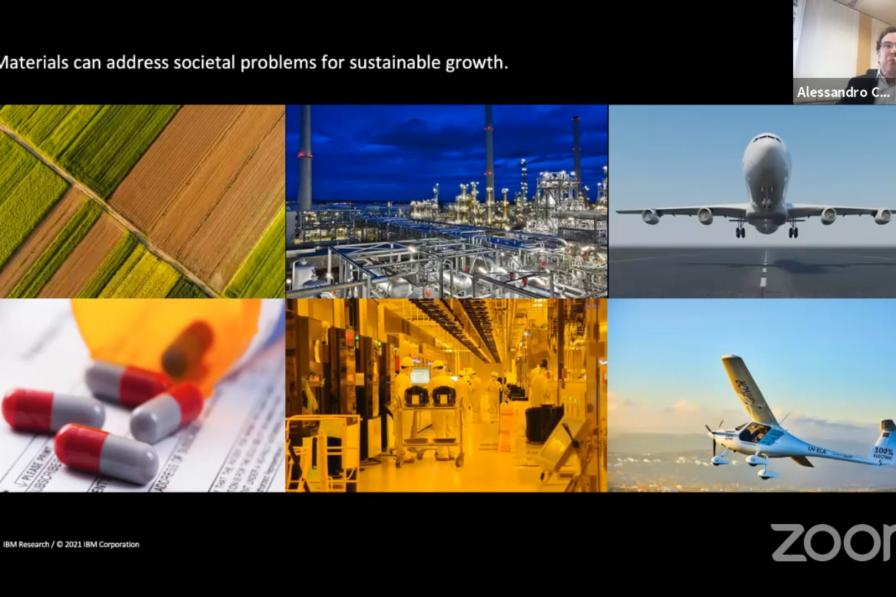
“If you can’t measure it, you can’t manage it.” This remark by Charles Ross, the Economist Intelligence Unit, summed up one of the key sentiments expressed during the first day of the UN Science-Policy-Business Forum on the Environment (UN-SPBF) 2021: data and digital transformation are key to progress in addressing the three planetary crises – climate change, biodiversity loss, and pollution.
The sessions convened on Thursday were:
- Opening of the UN-SPBF 2021, followed by an Expert High-Level Session on “Big Data and Frontier Tech: Powering the Transition to a Sustainable Future”;
- Addressing E-waste through Tracking, Traceability and Circularity Approach; and
- Green Jobs and Green Entrepreneurship: The Future We Want.
![]()
Opening of the Forum and Expert High-Level Session on “Big Data and Frontier Tech: Powering the Transition to a Sustainable Future”

Co-convened with the Group on Earth Observations (GEO) and Technology Partners.
The Opening Session and the Expert High-Level Session on “Big Data and Frontier Tech: Powering the Transition to a Sustainable Future,” discussed:
- How artificial intelligence is transforming industry towards a sustainability path;
- Whether there is sufficient data for essential decision making to reach the SDGs;
- Landmark initiatives for the planet such as the Earth Observation Biodiversity Network (GEOBON), meeting the SDGs using Google Earth Engine, and AWS-GEO Cloud Credits Programme;
- The launch of UN Environment Programme (UNEP)-IBM Pilot, “Marine Litter Digital Hub”; and
- Enablers of an ethical, equitable digital future.
The DEAL initiative was also announced.

Inger Andersen, UNEP Executive Director, urged for a digital transformation and said digitizing science will make it more easily accessible and understandable.
Laurent Durieux, Research Institute for Development (IRD), France, said defining a new path towards co-habitability between social and ecological systems will require transformation of open data to be better understood and utilized.
Adam Smith, Descartes Labs, underscored the necessity of data in the “race” to zero carbon emissions.
Thuraya al Hashimi, Federal Competitiveness and Statistics Centre (FCSC), United Arab Emirates, briefed participants on the creation of the Digital Data Enabling Sector at FCSC.
Ana Pinheiro Privette, Lead, Amazon Sustainability Data Initiative (ASDI) – AWS-GEO cloud credits programme, presented ASDI, which seeks to accelerate sustainability research and innovation by minimizing the cost and time required to acquire and analyze large sustainability datasets.
Munir Akram, President, UN Economic and Social Council (ECOSOC), highlighted that identifying the right research and development objectives is necessary to achieve the SDGs.
Kathryn Guarini, IBM Research, provided an overview of the evolution of artificial intelligence (AI), stating the core challenges facing today’s AI include an “insatiable” need for data and inadequate governance.
Florence Verzelen, Executive Vice President in Charge of Industry, Marketing and Sustainability, Dassault Systemes, highlighted a project with Accenture to prove digital technology can contribute to a resource economy, help reset the economy, and accelerate the “sustainable destruction” of goods.
Laurence Monnoyer Smith, Space Climate Observatory (SCO), explained SCO is an informal group of space agencies and international organizations created to step up coordination in developing customized operational tools to aid local decision makers with addressing climate change.
Bonnie Lei, Head of Global Strategic Partnerships – AI for Earth, Microsoft, presented the Microsoft Planetary Computer that aims to provide access to the largest environmental datasets to protect and restore our ecosystems.
Rebecca Moore, Director, Google Earth, presented the Google Earth Engine, which combines a multi-petabyte catalog of satellite imagery and geospatial datasets with planetary-scale analysis capabilities.
Dragoş Tudorache, Chair, Special Committee on Artificial Intelligence in a Digital Age (AIDA), European Parliament, said the two current policy foci for the EU are its Digital Agenda and the European Green Deal, which “inevitably” intersect.
Steven Ramage, GEO, on behalf of the GEO Secretariat Director, observed more action is needed on the policy side in harnessing big data and AI.
Speaking about the launch of the UNEP-IBM pilot, “Marine Litter Digital Hub,” Nicholas Holmes, IBM, said the project focused on: how best to use technology to inform decision making; how to engage with “digital humans”; and how to promote collaboration for rapid change.
Willem Clappaert, IBM, said the Marine Litter Digital Hub will serve as a global digital community platform to exchange ideas virtually and in real time. He introduced participants to a short video on the collaborative process envisioned.
Addressing E-waste through Tracking, Traceability and Circular Approach

Co-convened with the Secretariat of the Basel, Rotterdam and Stockholm (BRS) Conventions and UNEP’s Private Sector Unit.
The session on “Addressing E-waste through Tracking, Traceability and Circular Approach” discussed issues including:
- Why e-waste continues to be a problem despite the efforts of governments, industry, civil society, and international organizations;
- What the main drivers of e-waste as a global environmental challenge are;
- What policies and regulatory mechanisms are best suited to tackle e-waste;
- How sustainable management of e-waste contributes to the circular economy; and
- Whether regional cooperation provides solutions to support developing countries lacking capacities for dealing with e-waste.

Brendan Edgerton, Director, Circular Economy, World Business Council for Sustainable Development, underscored commitment, coordination, and collaboration are essential to overcoming barriers to using a circular economy approach to managing e-waste.
Underscoring e-waste as the world’s fastest growing waste problem, Carlos Silva Filho, President, International Solid Waste Association, stated the cost to monitor, track, collect, recycle, and recover is an ongoing issue.
Rolph Payet, Executive Secretary of the BRS Conventions, said the Basel Convention provides the regulatory framework for transboundary movements of e-waste to countries that have the capacity to provide environmentally sound management.
Pascal Leroy, Director General, WEEE Forum, noted e-waste is “more than just a contamination and health concern.” Addressing it, he said, involves recovering critical raw materials that come from risky sources and lowering the carbon footprint of equipment.
Larke Williams, State Department, US, said while the Basel Convention “has a lot to offer,” it is ultimately up to countries to ensure waste is managed properly.
Takeaways from the session included:
- Much efforts are needed to improve tracking and tracing of e-waste;
- Countries must become better at monitoring products throughout their lifecycle;
- Transboundary movements are a big challenge requiring global cooperation; and
- Consumers need to change their habits and expectations as part of the solution.
Green Jobs and Green Entrepreneurship: The Future We Want and The Launch of the Youth and Children UN-SPBF Working Group
Co-convened with the UNEP Major Group for Children and Youth, UNEP’s Partnership for Action on Green Economy (PAGE), and the International Labor Organization (ILO).
The session on “Green Jobs and Green Entrepreneurship: The Future We Want” addressed topics such as:
- The environment as a driver for job creation;
- A green economy underpinning a green future for young people;
- The policies and actions needed to address skills shortages for green jobs;
- The conditions needed to create and sustain green jobs in a post-COVID-19 world; and
- Green entrepreneurship addressing environmental and social challenges.
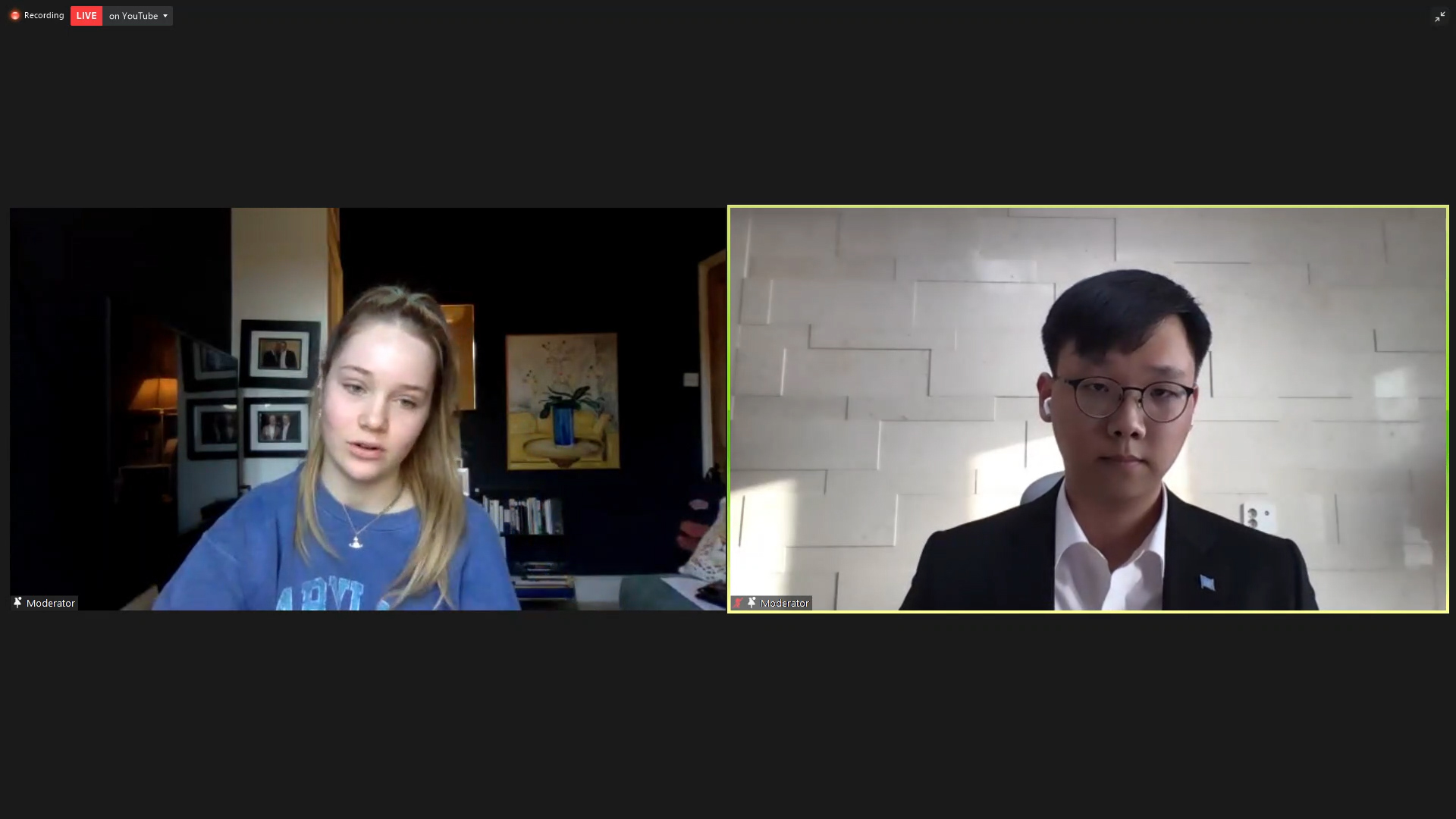
Moustapha Kamal Gueye, International Labour Organization (ILO), reported that ILO analyses show there is no trade-off between greening the economy and creating jobs. He said shifting from fossil fuels to green energy, accelerating energy efficiency, and deploying electric vehicles can create 24 million jobs.
Dhruv Khanna, Triton Foodworks, said the ecological impact of his company’s proprietary hydroponics and vertical farming systems includes: saving 6 billion liters of water so far; being pesticide-free; and providing safer-to-eat fruits and vegetables year-round in regions where there is limited supply.
Asad Naqvi, UNEP PAGE, said the environment is the foundation of the economy, and policies play a crucial role in transitioning to a sustainable economy.
Key messages that came out of the session include:
- Environment is the foundation of economy;
- More needs to be done to encourage youth’s interest in green jobs; and
- Technology acceleration means youth can create a better future than the one they inherit.
